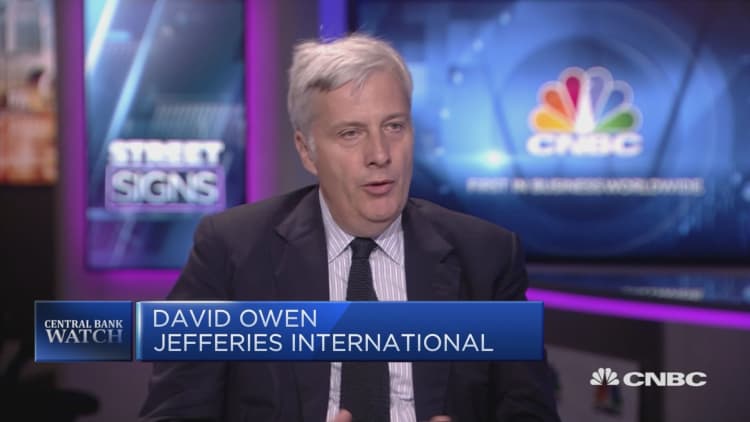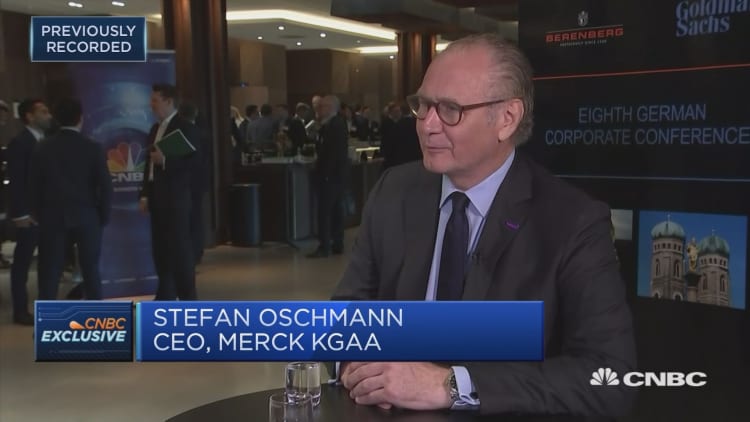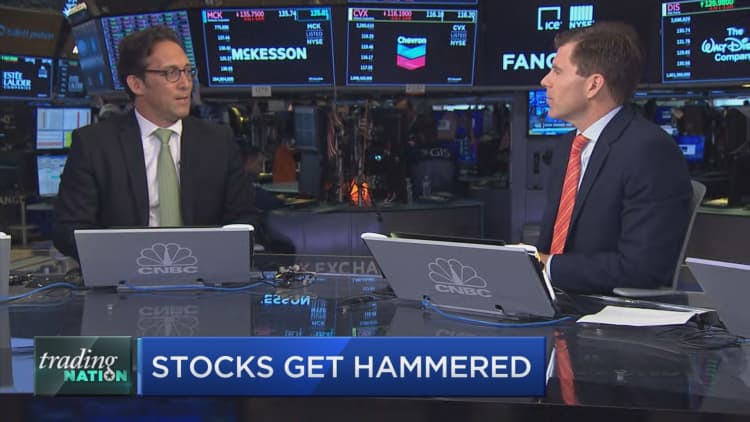Germany's leading economic research institutes have sharply downgraded their forecasts for Europe's largest economy.
With Germany facing an industrial recession, the Ifo Institute's joint economic forecast for 2019, published Wednesday, has been revised down from the 0.8% GDP (gross domestic product) growth projected in the spring to just 0.5%.
Reasons for poor performance include falling worldwide demand for capital goods, which has hit Germany's export-reliant economy, along with political uncertainty and structural changes in the automotive industry.
"German industry is in recession, and this is now also impacting the service providers catering to those companies," said Claus Michelsen, head of forecasting and economic policy at the German Institute for Economic Research (DIW Berlin).
"The fact that the economy is expanding at all is due primarily to the continuing positive spending mood of private households, which is being buoyed by good wage agreements, tax breaks, and the expansion of government transfers."

For 2020, the various economic research institutes have reduced their GDP growth forecasts to 1.1% from the 1.8% predicted in the spring.
"Risks arising from an escalation of the trade war are particularly high. But a disorderly Brexit would also have costs: it would cause German gross domestic product, taken by itself, to be 0.4 percent lower in the coming year than if there was an orderly exit," Michelsen added.
The joint forecast comprises research from German research institutes DIW, the Ifo Institute, IfW (Kiel Institute), IWH (Halle Institute for Economic Research and RWI Essen (Rheinisch-Westfälisches Institut).
Knock-on effect
The report also showed that employment growth in Germany has lost momentum as a consequence of the economic slowdown, with the industrial sector cutting jobs, while service providers and the construction sector are still hiring.
The institutes forecast employment growth of 380,000 jobs this year, but in the next two years, it is expected that only 120,000 and 160,000 new regular employment positions will be created.

The unemployment rate will rise to 5.1 percent in 2020 from 5.0% in 2019 and is then expected to fall again to 4.9% in 2021, the institutes now project.
Consumer prices will continue to increase at a moderate pace by 1.4% in 2019, 1.5% in 2020, and 1.6 percent in 2021.
Germany is expected to retain a budget surplus this year of around 50 billion euros ($54.55 billion), but researchers anticipate that this will dissipate by 2021 to around 4 billion euros ($4.37 billion).
Worldwide manufacturing misery
Manufacturing PMIs (purchasing managers' index) in Germany are at their lowest since the aftermath of the global financial crisis, with the spillovers of external demand slowdown and an associated decline in business investment evident across Europe.
In the euro area, September manufacturing PMI dropped once again by 1.3 points to 45.7, falling below 46.0 for the first time since the European debt crisis.
The global picture is also reflecting an increasingly grim reality, with the Institute for Supply Management (ISM) revealing on Tuesday that U.S. manufacturing activity contracted in September to its lowest in over a decade.
Barclays' global manufacturing confidence (GMC) index declined for an eighth successive month in September, coming in at -0.58. In its report published Wednesday, Barclays said the data represented a strengthening of the global industrial recession and its drag on confidence.
"Broader developed market (DM) sentiment remained uninspiring, with weak current momentum and unfading trade uncertainty in the driver's seat," Barclays Vice President of macro research Iaroslav Shelepko said in an accompanying note Wednesday.

However, the risks of further deterioration have abated somewhat, with the forward-looking gauge (-0.78) picking up marginally from multi-year lows reached in August.
"Tepid hopes for future improvement now reside mainly with EM Asia - in line with a pickup in the September assessment of export orders across the region," Shelepko said.
"Stabilization of headlines about U.S.-China trade tensions ahead of October trade talks, which suggests that both sides could be considering a limited trade deal as a way to achieve temporary de-escalation, should be supportive of business sentiment, particularly in trade-exposed EM economies."
EM Asia manufacturing PMI, lifted by some trade optimism in September, rose to 50 from a multi-year low in August (49.8).


